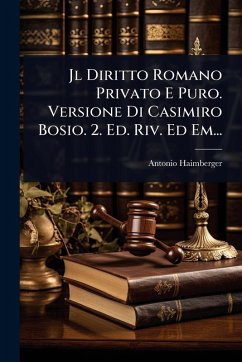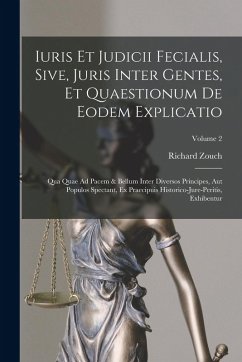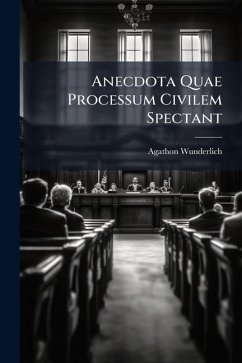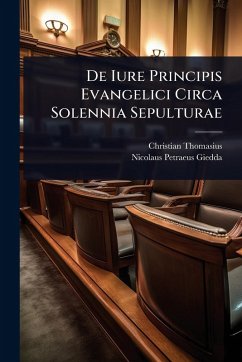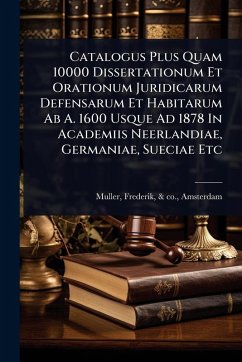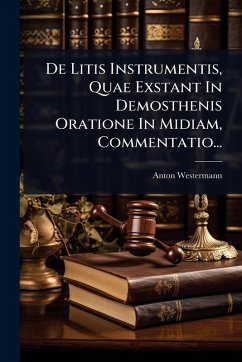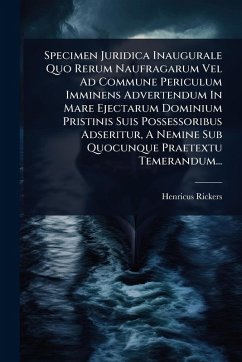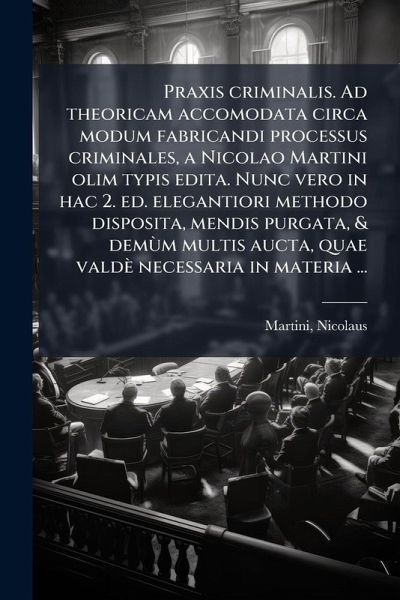
Praxis criminalis. Ad theoricam accomodata circa modum fabricandi processus criminales, a Nicolao Martini olim typis edita. Nunc vero in hac 2. ed. elegantiori methodo disposita, mendis purgata, & demùm multis aucta, quae valdè necessaria in materia ...

PAYBACK Punkte
12 °P sammeln!
Praxis criminalis, by Nicolaus Martini, is a comprehensive treatise on criminal procedure and law, adapted to theoretical principles. This second edition, published in 1745, refines the methodology, corrects errors, and significantly expands upon the original work. Martini's text offers a detailed examination of the processes involved in criminal proceedings, presenting a valuable resource for legal scholars and practitioners of the period. Written in Latin, the book provides insights into the legal practices and theories prevalent in the 18th century, making it an important historical documen...
Praxis criminalis, by Nicolaus Martini, is a comprehensive treatise on criminal procedure and law, adapted to theoretical principles. This second edition, published in 1745, refines the methodology, corrects errors, and significantly expands upon the original work. Martini's text offers a detailed examination of the processes involved in criminal proceedings, presenting a valuable resource for legal scholars and practitioners of the period. Written in Latin, the book provides insights into the legal practices and theories prevalent in the 18th century, making it an important historical document for understanding the development of criminal justice. This work has been selected by scholars as being culturally important, and is part of the knowledge base of civilization as we know it. This work was reproduced from the original artifact, and remains as true to the original work as possible. Therefore, you will see the original copyright references, library stamps (as most of these works have been housed in our most important libraries around the world), and other notations in the work. This work is in the public domain in the United States of America, and possibly other nations. Within the United States, you may freely copy and distribute this work, as no entity (individual or corporate) has a copyright on the body of the work. As a reproduction of a historical artifact, this work may contain missing or blurred pages, poor pictures, errant marks, etc. Scholars believe, and we concur, that this work is important enough to be preserved, reproduced, and made generally available to the public. We appreciate your support of the preservation process, and thank you for being an important part of keeping this knowledge alive and relevant.



